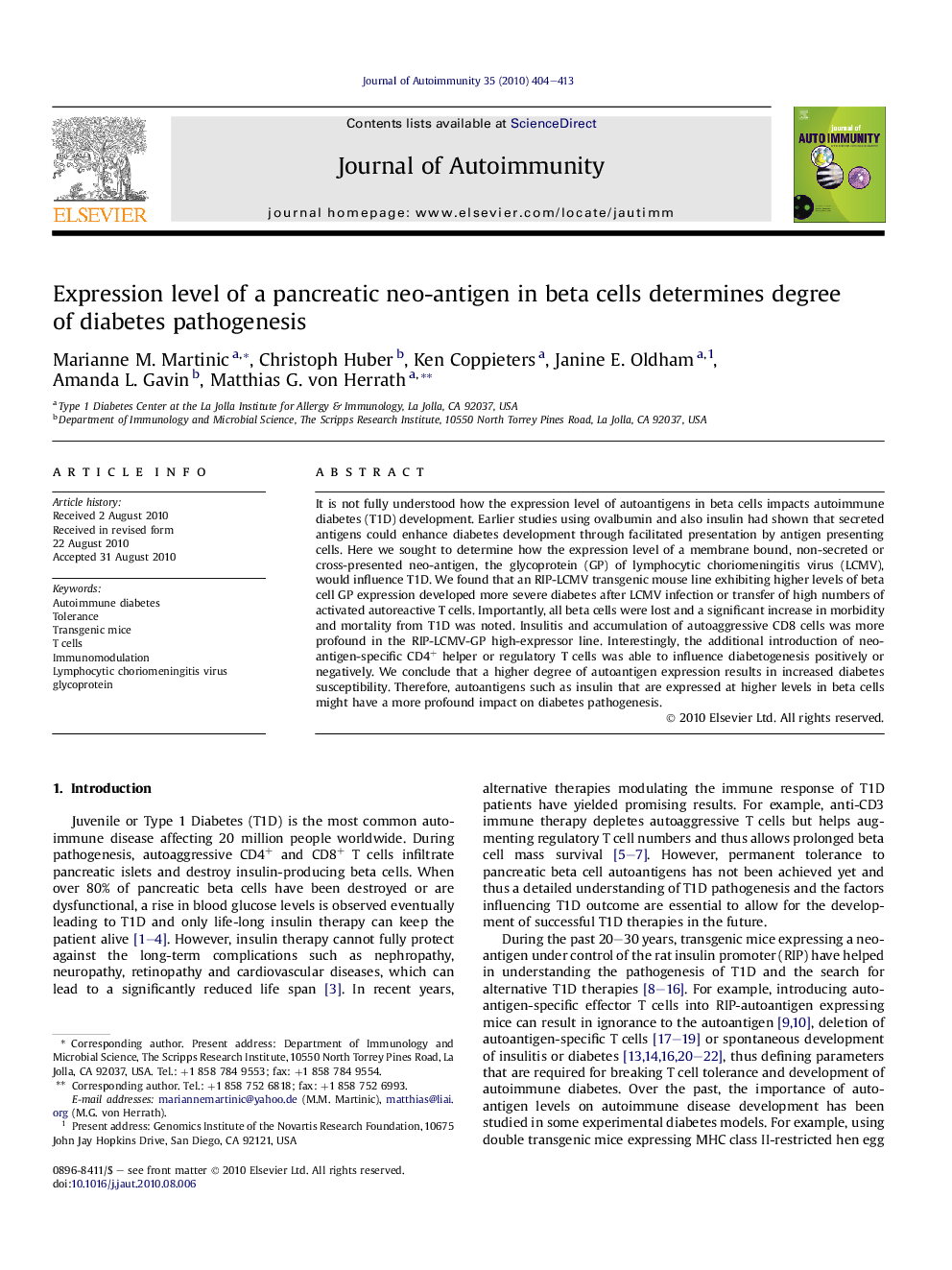| Article ID | Journal | Published Year | Pages | File Type |
|---|---|---|---|---|
| 3368190 | Journal of Autoimmunity | 2010 | 10 Pages |
It is not fully understood how the expression level of autoantigens in beta cells impacts autoimmune diabetes (T1D) development. Earlier studies using ovalbumin and also insulin had shown that secreted antigens could enhance diabetes development through facilitated presentation by antigen presenting cells. Here we sought to determine how the expression level of a membrane bound, non-secreted or cross-presented neo-antigen, the glycoprotein (GP) of lymphocytic choriomeningitis virus (LCMV), would influence T1D. We found that an RIP-LCMV transgenic mouse line exhibiting higher levels of beta cell GP expression developed more severe diabetes after LCMV infection or transfer of high numbers of activated autoreactive T cells. Importantly, all beta cells were lost and a significant increase in morbidity and mortality from T1D was noted. Insulitis and accumulation of autoaggressive CD8 cells was more profound in the RIP-LCMV-GP high-expressor line. Interestingly, the additional introduction of neo-antigen-specific CD4+ helper or regulatory T cells was able to influence diabetogenesis positively or negatively. We conclude that a higher degree of autoantigen expression results in increased diabetes susceptibility. Therefore, autoantigens such as insulin that are expressed at higher levels in beta cells might have a more profound impact on diabetes pathogenesis.
